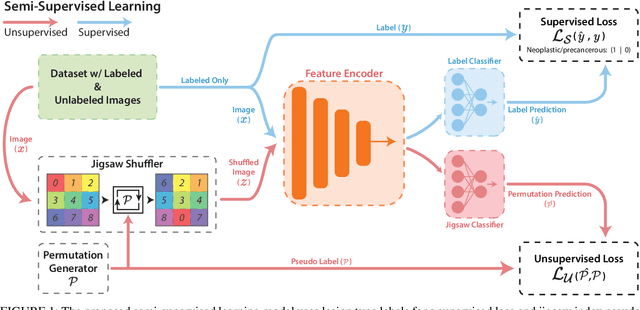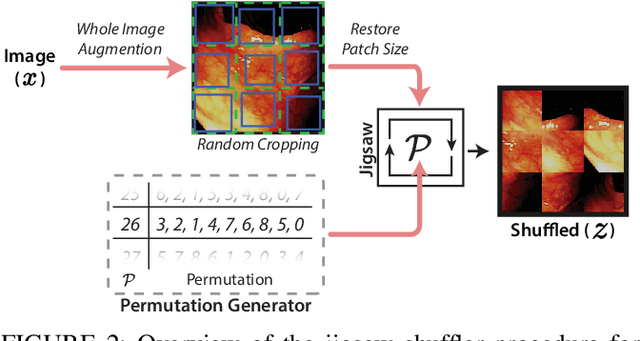Improving colonoscopy lesion classification using semi-supervised deep learning
Paper and Code
Sep 07, 2020



While data-driven approaches excel at many image analysis tasks, the performance of these approaches is often limited by a shortage of annotated data available for training. Recent work in semi-supervised learning has shown that meaningful representations of images can be obtained from training with large quantities of unlabeled data, and that these representations can improve the performance of supervised tasks. Here, we demonstrate that an unsupervised jigsaw learning task, in combination with supervised training, results in up to a 9.8% improvement in correctly classifying lesions in colonoscopy images when compared to a fully-supervised baseline. We additionally benchmark improvements in domain adaptation and out-of-distribution detection, and demonstrate that semi-supervised learning outperforms supervised learning in both cases. In colonoscopy applications, these metrics are important given the skill required for endoscopic assessment of lesions, the wide variety of endoscopy systems in use, and the homogeneity that is typical of labeled datasets.
 Add to Chrome
Add to Chrome Add to Firefox
Add to Firefox Add to Edge
Add to Edge